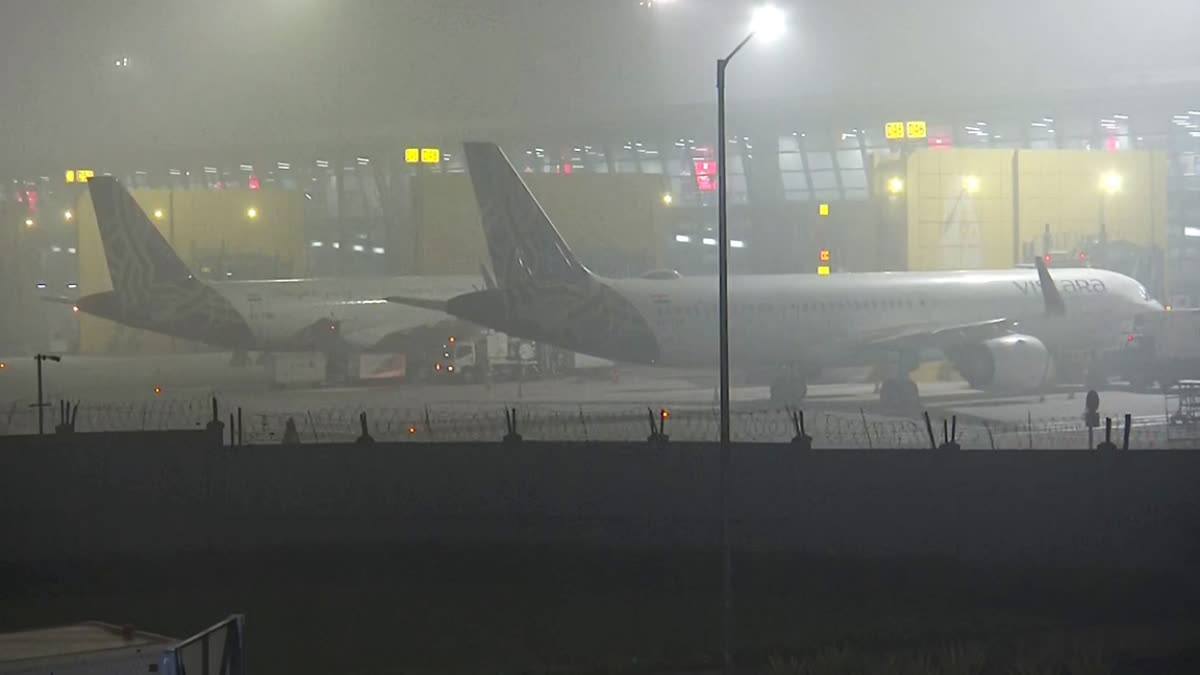New Delhi: Winter's arrival often brings thick fog, a major obstacle for air travel. Airports face challenges during November and December as fog can severely hamper operations due to limited visibility.
Speaking to ETV Bharat's Surabhi Gupta, aviation expert Subash Goyal explained the technology advancements that have significantly improved operations during foggy conditions. "Poor visibility can result from fog, pollution, or rainstorms. Most Indian airports have Instrument Landing Systems (ILS). While we previously had Category II ILS, Delhi International Airport now boasts a Category IIIb ILS, one of the most advanced landing systems in the world, he said.
He added that despite flights being computer-controlled, pilots play a crucial role. Subash Goyal emphasised that airlines are prepared for disruptions, implementing extra staff and facilities to accommodate affected passengers. "Announcements are made every 15 minutes, and airlines have the contact numbers of passengers. Thanks to artificial intelligence, automated announcements inform passengers of any delays. Additionally, travellers are advised to arrive at the airport earlier than usual—three hours before departure is recommended", he said.
"According to international aviation regulations, dense fog can significantly impact flight operations. However, advancements in technology, such as artificial intelligence, have greatly improved our ability to manage these disruptions. Just a few weeks ago, before the implementation of Category II ILS, many flights were cancelled due to foggy conditions. Now, with accurate weather predictions, air traffic control can anticipate potential fog-related issues and make necessary adjustments to flight schedules", added Subhash Goyal.
As a reassuring note for travellers, he said that flying is statistically safer than driving, especially in foggy conditions as aircraft are equipped with systems that automatically prevent collisions.



